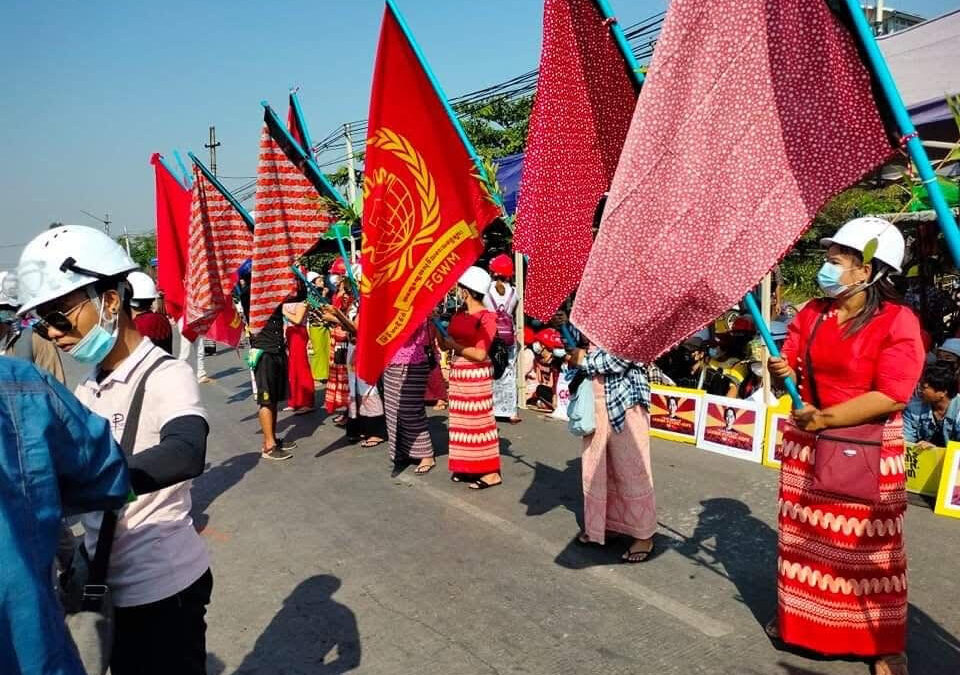
Mar 9, 2021
Trade unions shuttered workplaces and brought thousands of people to the streets Monday in Myanmar, mobilizing a general strike as part of their continued resistance to the military takeover of the government on February 1.
In a statement calling for a nationwide strike on Sunday, the coalition of 18 unions said: “To continue economic and business activities as usual, and to delay a general work-stoppage, will only benefit the military as they repress the energy of the Myanmar people; The time to take action in defense of our democracy is now. The workers of Myanmar are prepared to take action to protect democracy and save our future generations from dictatorship. We believe all Myanmar people are prepared to respond to a call to action.”
In response to worker leadership in the civil disobedience movement (CDM), including other work stoppages, the military has declared at least 16 labor unions to be “illegal organizations” and has arrested or filed arrest orders for at least 71 individual union leaders, sources in the Myanmar labor movement tell the Solidarity Center. In 135 confirmed cases, workers have been fired for participating in street protests, while thousands more have had their factory jobs threatened if they participate further in the CDM.
The unions, mostly led by women, are on the front line with students and broader civil society calling for a return to democracy. For their leadership, they have had their union offices and homes and dormitories, where most garment workers live, raided and warrants for their arrest issued. Over the weekend, according to the Confederation of Trade Unions-Myanmar (CTUM), the military sought to arrest seven labor leaders, five women and two men: CTUM Women’s Committee President Swe Swe Khaing; AMG Garment Factory Union President Thet Mar Soe; Honor Garment Factory Union President, Sai Min Theta; Popular Garment Factory Union Secretary Treasurer Aye Thandar; Industrial Workers’ Federation of Myanmar union organizers San Sen and Myo Min Win; and Ei Ei Hlian, an executive committee member of Charming Garment Factory Union.
More than 60 people have been killed during the brutal crackdown on protesters and nearly 2,000 people have been arrested.
Since the political opening to quasi democracy in 2011, Myanmar has seen rapid growth in foreign direct investment. Major multinational brands source from factories there, with low-paid workers producing garments, footwear, sports equipment, cars and consumer goods. The country logged $4.5 billion in garment exports from October 2019 to July 2020.
Myanmar unions are urging countries and businesses to publicly condemn the coup; to exercise due diligence to ensure no business or investment is linked directly to or associated with the military; to announce that future international investments in the country would be reconsidered if democracy is not restored; ensure that no worker or union leaders are punished for going on strike or joining the current demonstrations against the coup; and to protect and respect freedom of association and the rights to assemble and peacefully protest.
The global labor movement has condemned the military coup, including the International Trade Union Confederation, AFL-CIO and IndustriALL, and called for the immediate restoration of democracy.
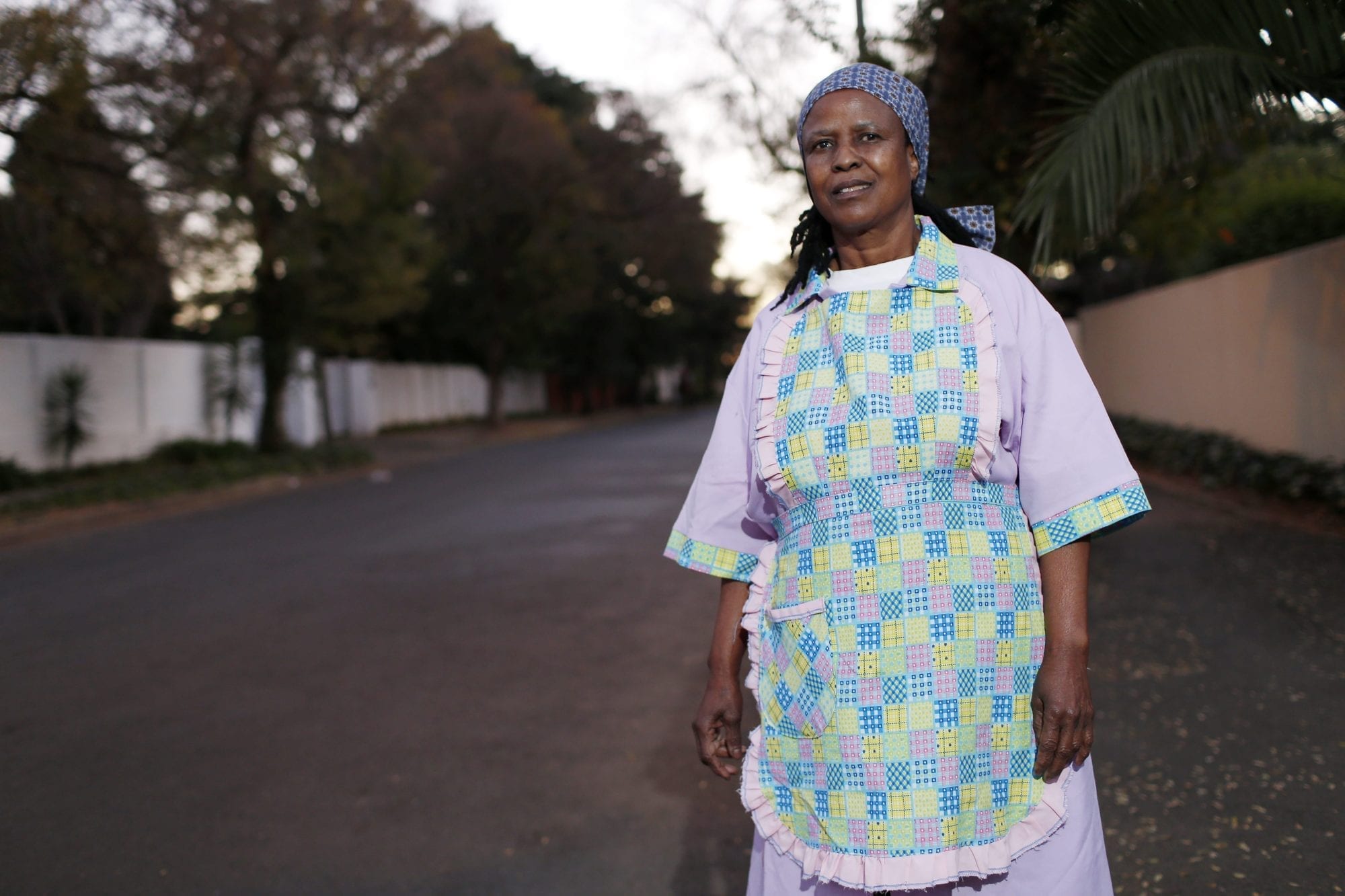
Jan 11, 2021
In an historic judgment, the South African Constitutional Court in mid-November recognized that injury and illness arising from work as a domestic worker in a private home is no different to that occurring in other workplaces and equally deserving of compensation. Beyond recognizing occupational hazards in the home, the decision also recognized the broader harm wrought by the invisibility of gendered, racialized work in the privacy of homes in the context of post-colonial and post-apartheid South Africa.
In the case of Mahlangu and Another v Minister of Labor and Others, the South African Domestic Service and Allied Workers Union (SADSAWU), with support from the Solidarity Center, challenged the constitutionality of provisions of the Compensation for Occupational Injury and Illness Act (COIDA), which precludes domestic workers employed in private homes from making claims to the Compensation Fund in cases of illness, injury, disablement or death at work. The Constitutional Court agreed that this exclusion violates rights to social security, equality and dignity, and it made this finding retroactively applicable from 1994, the date the South African constitution was enacted. In so doing, the court articulated a theory of intersectional discrimination and moved forward its own jurisprudence on indirect discrimination, infusing the right to social security, dignity and retrospective application with an intersectional analysis. It also reframed the narrative on domestic workers: no longer invisible but “unsung heroines in this country and globally”(paragraph 1).
The judgment gives a central role to international law, and establishes that “in assessing discrimination against a group or class of women of this magnitude that a broad national and international approach be adopted in the discourse affecting domestic workers“(Paragraph 42). It continues that, under international law conventions, including the International Covenant on Economic, Social and Cultural Rights (ICESCR), the exclusion of domestic workers from COIDA is inexplicable.
The court found that COIDA is a form of social security because the inability to work or the loss of a breadwinner’s support as a result of the COIDA exclusion, traps domestic workers and their dependents in cycles of poverty. According to the court this exclusion is unreasonable because it did not take into account the needs of the most vulnerable members of society, particularly those who experience compounded vulnerabilities arising from intersecting maltreatment based on race, sex, gender and/or class. It concludes that there is no legitimate objective to the exclusion, rather it entrenches patterns of disadvantage.
This case could be easily disposed on grounds of direct discrimination, since the majority found the exclusion irrational and arbitrary, and therefore constitutionally invalid. However, the case provided the court with a unique opportunity to interpret constitutional provisions on indirect discrimination, using an intersectional framework: Domestic workers “are predominantly Black women … and discrimination against them constitutes indirect discrimination on the basis of race, sex and gender” (paragraph 75). It goes on to find that discrimination on the grounds of race, gender and sex are not only presumptively unfair “but the level of discrimination is aggravated”(paragraph 73).
The court took the opportunity to enunciate a theory of intersectionality, which considers the social structures that shape the experience of marginalization, and the convergence of sexism, racism and class stratification. Viewed historically, the racial hierarchy established by apartheid, placed Black women at the bottom of the social hierarchy and relegated them to low-skilled and low-paid sectors of the workforce, such as domestic work. This sector was and is predominated by Black women and remains the third largest employer of women in South Africa. Yet it continues to be characterized by poverty-level salaries and poor living conditions, in which domestic workers are deprived of their own family while caring for that of their employers. As a result, the court found that domestic workers are a “critically vulnerable group of workers,” declaring the COIDA exclusion invalid both at an individual and group level (paragraph 106).
Background
The case centers on Maria Mahlangu, who was employed as a domestic worker in a private house for 22 years. According to her family, she was partially blind and could not swim. In March 2012 while at work, she fell into her employer’s swimming pool and drowned. When Mahlangu’s dependent daughter approached the Department of Labor for compensation, she was told that she was precluded from doing so under COIDA. Then SADSAWU organizer Pinky Mashiane read about the incident in a newspaper and approached the family to see how she could assist.
In 2013, the Solidarity Center embarked on a research project under a USAID grant to examine domestic workers’ socioeconomic rights in South Africa, which culminated in a list of domestic worker issues requiring urgent law reform. At the top of this list was inclusion of domestic workers in COIDA. Indeed, the issue had been on the agenda since 2001, without legislative reform being passed.
At the same time the Solidarity Center was looking for a litigant to challenge COIDA’s constitutionality. Pinky Mashiane—after having been turned down by multiple lawyers and law centers—was looking for a remedy to assist Mahlangu’s family. The Solidarity Center approached lawyers in South Africa as well as SADSAWU leadership with the proposal to litigate this case in constitutional terms, with financial support. Beginning in 2015, the case wound its way through the South African court system, litigated before the Constitutional Court by lawyers from the Social and Economic Rights Institute (SERI).
The case benefited from sustained advocacy at global and local levels. In 2019 , the Solidarity Center and partners brought the issue of domestic workers’ exclusion from COIDA before the United Nations Committee on Economic, Social and Cultural Rights, which was considering South Africa’s compliance with treaty obligations. In its concluding observations, cited in the Constitutional Court’s decision, the Committee recommended that South Africa include domestic workers in COIDA. Similarly, in the early stages of litigation, the amicus, the Gender Commission of South Africa, expressed frustration at the almost complete absence of information on the types of injuries and illnesses arising in the context of domestic work in private homes. To fill this vacuum, Solidarity Center commissioned qualitative research consisting of in-depth interviews with domestic workers around the country, describing the types of injury and illness occurring in the context of the home. After the COVID-19 pandemic broke out, which had severe consequences for domestic workers, domestic worker unions and partners also put together a petition to try and propel the legislature to include domestic workers in COIDA. Most significantly, at each of the numerous court hearings, the domestic worker unions and groups maintained a constant presence at the court, and in the media, insisting that the death of Maria Mahlangu not be in vain.
Far-Reaching Impact
When Solidarity Center initially proposed constitutional impact litigation on COIDA, it was with the hope that a successful outcome in this case would serve three purposes: obtain much-needed relief for domestic workers who were outside of COIDA’s purview; strengthen domestic worker unions; and create an important precedent that would lay the foundation for jurisprudence on domestic workers that could serve as a global marker.
The Mahlangu decision will clearly achieve the first as it removes the legal obstacle to domestic workers claiming compensation, with immediate and retrospective effect. Meanwhile, the long road to Mahlangu has also strengthened a growing coalition of unions and NGOs that have articulated their claims effectively in all forms of media. The fact that after 26 years of democracy, Mahlangu is the first case brought by the domestic worker union to the apex court of South Africa and guardian of constitutional values is a significant milestone.
Yet, perhaps the greatest import of Mahlangu might lie both in its precedent and in the paradigm it establishes to conceptualize domestic work. Using international human rights norms as a reference point, the court sets up an approach on domestic workers as a category, which stands to benefit domestic workers in South Africa and beyond. It also reasserts the goals of transformative constitutionalism as “undoing gendered and racialized poverty” and insists that an intersectional and historic lens is essential to the achievement of structural and systematic transformation. Indeed, the adoption of a historical lens allows the Court to reframe the narrative of domestic workers and their place in South Africa’s constitutional democracy: no longer powerless and invisible, but foundational toSouth Africa’s constitutional project. This reframing is captured eloquently in the concurring judgment of Justice Mhlantla who asserts that these Black women are smart, creative and survivors; who frequently work in environments that are emotionally and physically challenging, and which carry vestiges of South Africa’s colonial and apartheid past. She concludes: “On the contrary, they have a voice,” and according to Justice Mhlanthla J (paragraph 195) as well as the substance of majority judgment, the Constitutional Court is “listening.”
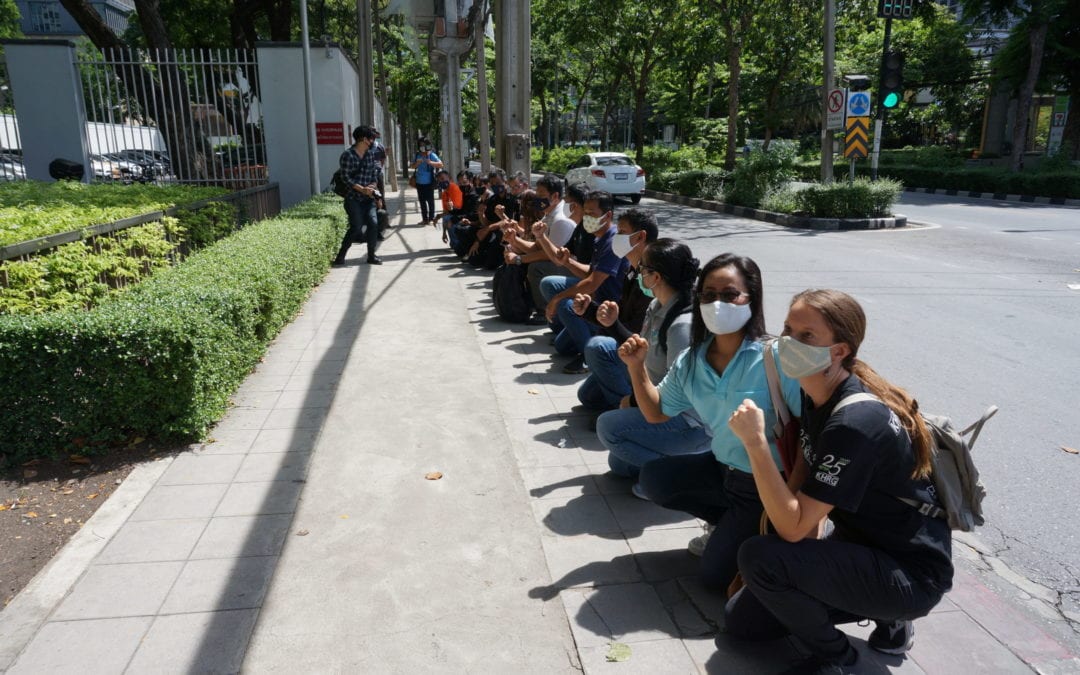
Jun 25, 2020
Around the world, workers and their labor unions and have joined in solidarity with the Black Lives Matter protesters in the United States, demonstrating support for peaceful marches, and decrying racism, police brutality and inequality—in the United States and in their own countries.
In South Africa, the Congress of South African Trade Unions (COSATU) expressed outrage “at the extent to which racism is deeply entrenched and vicious in the U.S., particularly against blacks and other minority groups in a country purporting to be the world’s leading democracy.” COSATU also is one of the organizers of “Black Friday,” a campaign calling on South Africans to wear black every Friday to show solidarity in the fight against racism.
The South African Federation of Trade Unions wrote: “Saying ‘Black Lives Matter!’ is not just about opposing police brutality though. It is also about the structure of society: the political and economic systems that devalue black lives, black land, black culture and blackness.”
In a letter, the Nigerian Labor Congress condemned the murder of George Floyd and demanded justice for his killing, and demanded that world governments and institutions “take very strong and stern steps to stamp out racism in all its shades on the streets, in the workplace, and on play grounds.” And the Amalgamated Union of Kenya Metal Workers took to Twitter, calling George Floyd’s murder “unacceptable in this modern day.”
Meanwhile, the Confederation of Ethiopian Trade Unions said, “We recognize that anti-blackness is an injustice that must continue to be addressed fearlessly in the United States and around the world. We strongly believe that labor unions have a crucial role to play in this fight.”
In a letter of support, the Zimbabwe Congress of Trade Unions said, “Racism has no place in the modern-day world,” adding that it “supports the fight of the American people to dismantle racism and establish equality and social justice.”
Africans also marched in Ghana, Kenya, Liberia, Nigeria and Senegal.

Union activists support rally in support of Black Lives Matter in Thailand, Nigeria, Brazil and Tunisia.
Across Brazil, unions have organized rallies and panel discussions, and have sent letters in support of the U.S. protest movement. The CUT, which also participated in #BlackoutTuesday, said, “There have been centuries of oppression, inequalities and social injustices. Especially in this pandemic moment, the working class is the one who suffers the consequences both for the defense of lives as well as for the defense of jobs and rights, in addition to ensuring survival for many who can no longer guarantee their income in the informal economy.”
Brazil’s National Confederation of Workers in the Financial Sector (CONTRAF) repudiated all police violence against black people—especially in Brazil, where “75.4% of victims by Brazilian police were black” in 2019. And Brazil’s UGT, garment-sector federation CNTRV and the Center for Human Rights and Immigrant Citizenship conducted an online anti-racism campaign.
Tunisia’s UGTT called on all the unions around the globe to “build an international united front against racism and hatred, and to build social justice and equality in the USA and all over the world.”
On the other side of the world in Bangkok, about 50 Thai trade union leaders, staff and members gathered for the rally at the U.S. embassy to call on the U.S. government to stop police violence, racism and discrimination against black people. Garment unions in Bangladesh and Myanmar—in their own difficult fight for survival during the COVID-19 pandemic—posted photos of solidarity. To protesters in U.S. streets, the Bangladesh Sommolito Garment Sramik Federation tweeted, “What you are doing is necessary and vital to dismantle the oppression that saturates our world and deliver a future where justice prevails.”
All are Solidarity Center partners.
See the Solidarity Center’s statement on Black Lives Matter and the fight for social justice here.
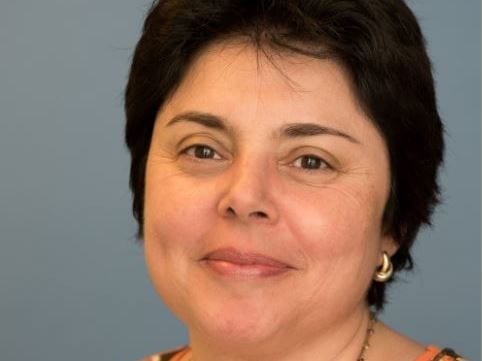
Jul 31, 2019
The Solidarity Center is deeply saddened by the death of our colleague and friend, Lyuba Frenkel, senior program officer for Europe and Central Asia, who succumbed July 30 after a brave battle with brain cancer.
Over Lyuba’s 26-year career with the Solidarity Center, she was instrumental in designing, supporting and monitoring projects that bolstered freedom of association throughout Eastern Europe, and for several years also in Southeast Asia. She built close cooperation with local partners, with a focus on collective bargaining, grievance representation, labor laws, trade union organizing, dispute resolution, migration and worker rights. Throughout her successful career, Lyuba never missed an opportunity to convince workers their lives can be better when they join in a union to fight for their interests together.
“A quiet person with a passion for the work, Lyuba helped thousands of workers understand and exercise their rights,” said Rudy Porter, Solidarity Center regional program director, Europe and Central Asia. “She will be deeply missed, both within the Solidarity Center and among the dozens of partner organizations around the globe with which she had such close ties.”
Lyuba was a tireless defender of those who suffered persecution because of their participation in independent unions, and almost daily sought new ways to push their cases to the forefront of public attention. And as a longtime advocate for women’s leadership to drive economic justice and social protection for all, Lyuba was an important catalyst for the Solidarity Center’s gender work today. She was especially involved in building union campaigns in Eastern Europe to end gender-based violence in the workplace.
“In her 26 years with the Solidarity Center, Lyuba stood firmly by people engaged in some of the world’s most consequential struggles for worker rights and human dignity. She did so with integrity and generosity, born of her deep commitment to justice. Lyuba was respected, liked and admired by everyone she worked with, and we will miss her,” said Shawna Bader-Blau, Solidarity Center executive director.
Lyuba is survived by her mother and daughter.
A graveside memorial service will take place at 1 p.m. Sunday, August 4, at the Garden of Remembrance Memorial Park, 14321 Comus Rd., Clarksburg, Maryland.
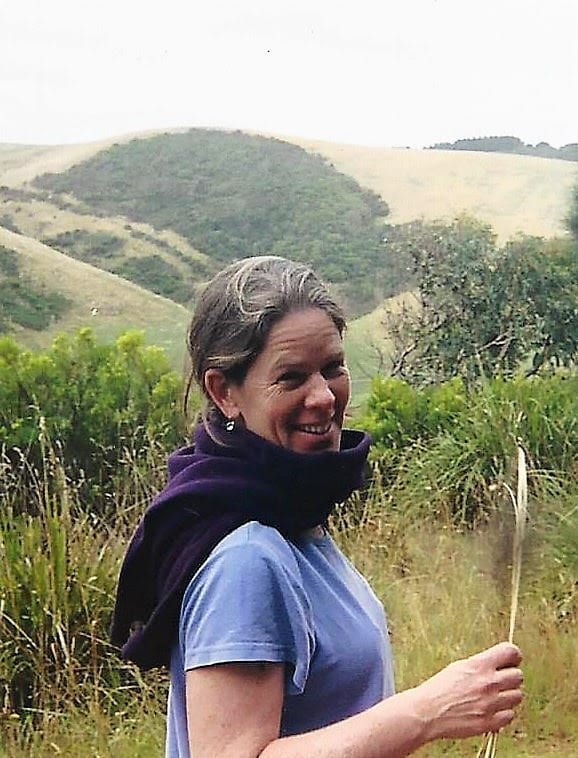
Nov 25, 2018
The Solidarity Center is mourning the loss of our colleague, sister and friend, Lisa McGowan, who succumbed to cancer November 24, 2018.
Lisa was a deeply passionate advocate for the marginalized, channeling boundless energy and true heart into her lifelong campaign for worker rights and the advancement of women. An economist and gender expert with more than 25 years of experience, Lisa worked to give people the tools to shape the development, labor and economic policies that affect them. And she had a profound impact on everyone around her.
“Lisa was a true union sister, colleague and friend. She inspired everyone around her to fight for a more just and equitable world. She dedicated her life to building bridges between the labor and feminist movements and creating transformative strategies that improved the lives of so many women workers. We deeply loved and respected her and will carry her passion for justice forward,” said Cathy Feingold, director, AFL-CIO International Department.
“Lisa’s commitment to equality ran deep, and it was more than just political. It was in her soul, in her enormous heart. She was a tenacious advocate for feminist transformation, and she brought creativity, wisdom, strategy and power to everything she did,” said Shawna Bader-Blau, Solidarity Center executive director. “At work she was a leader who led with her passion and her love for justice. For those of us who were lucky enough to know and love Lisa, we are forever changed and our work will always reflect what we learned from her and how she impacted us.”
In her 19 years at the Solidarity Center, Lisa served in various roles—including deputy country director for Algeria, Morocco and Tunisia, and acting regional program director for the Middle East and North Africa—ultimately leading the Inclusion and Equality Department, established in 2016. At the Solidarity Center, she developed and implemented transformational education programs related to women workers’ empowerment and action in the global economy. Over the past year, she collaborated across the global labor movement and in conjunction with women’s rights groups to push for an International Labor Organization global convention against violence and harassment at the workplace. That convention will be voted on in June 2019.
Chidi King, director of the Equality Department at the International Trade Union Confederation, said in a video of support, that Lisa has been “one of the greatest champions of work around ending gender-based violence. And we wouldn’t be on the brink of a historic convention on violence and harassment in the world of work without the stellar, amazing work [that she] has been doing all these years.”
In addition, Lisa was instrumental in developing the Women’s Global Leadership Program, in conjunction with Cathy Feingold, which helps connect women trade unionists in the United States with women in the global labor movement. The program is held every year at the UN Commission on the Status of Women meeting.
Lisa also found inspiration and joy in singing about social justice and was an active member of the DC Labor Chorus.
Prior to joining the Solidarity Center, Lisa served as an economist and technical director at the International Center for Research on Women, the Development Group for Alternative Policies and 50 Years Is Enough, social movements dedicated to rights, gender equality and economic and social justice. She was on the International Planning Committee for the 2016 Forum of the Association for Women’s Rights in Development (AWID), an international, feminist, membership organization committed to achieving gender equality, sustainable development and women’s human rights.
Lisa leaves behind her husband, Matt Assenmacher, and son, Eli, and extended family. She will be sorely missed by us all. Friends and colleagues wishing to leave comments for her family can do so at the website, LotsaHelpingHands.com






